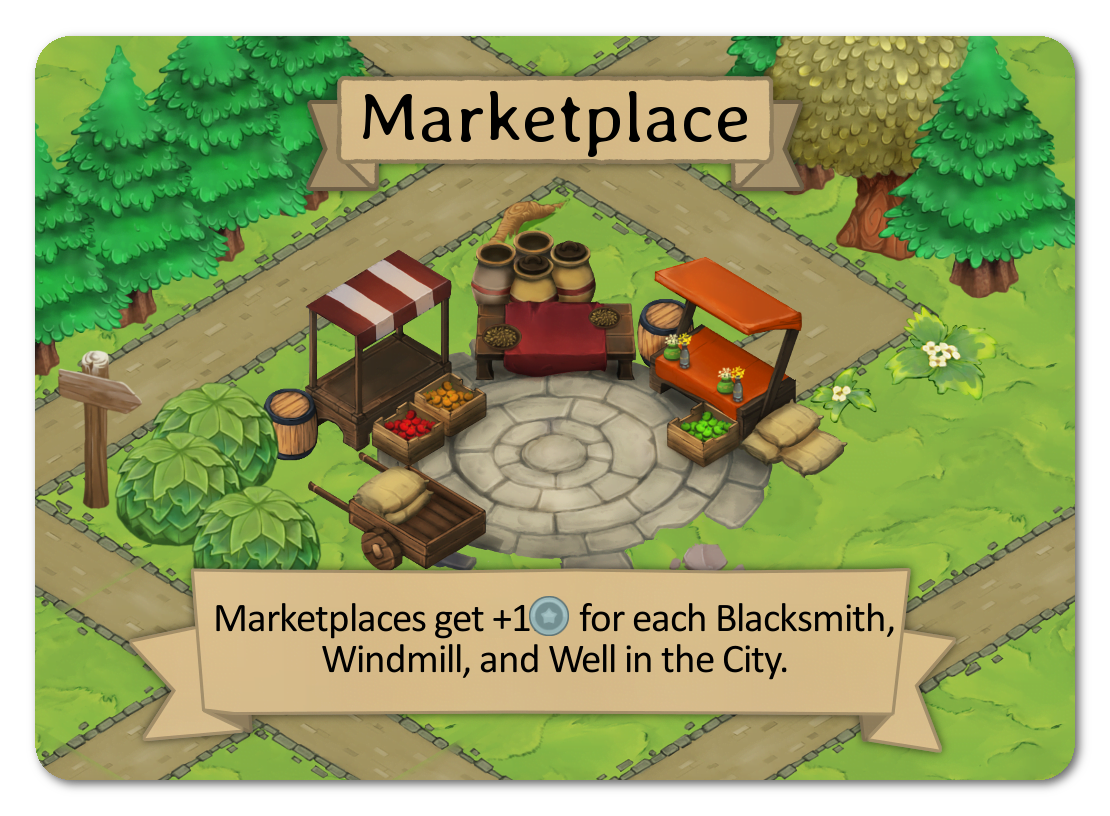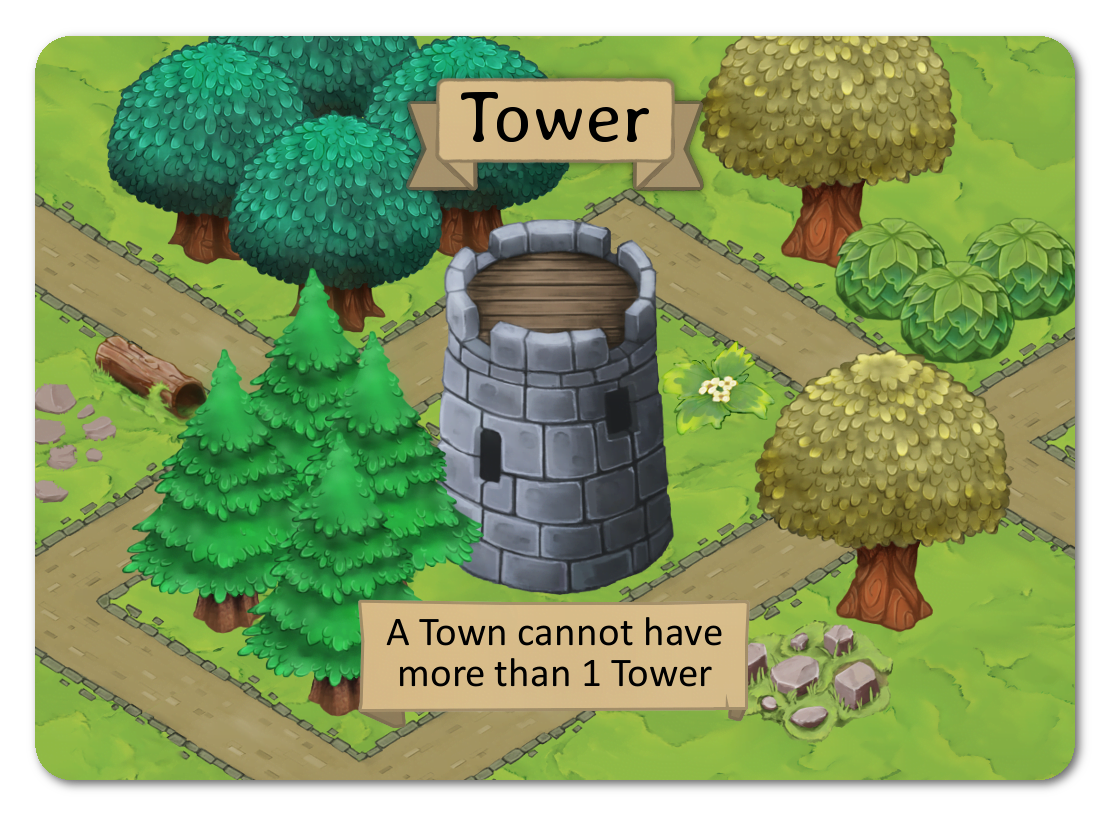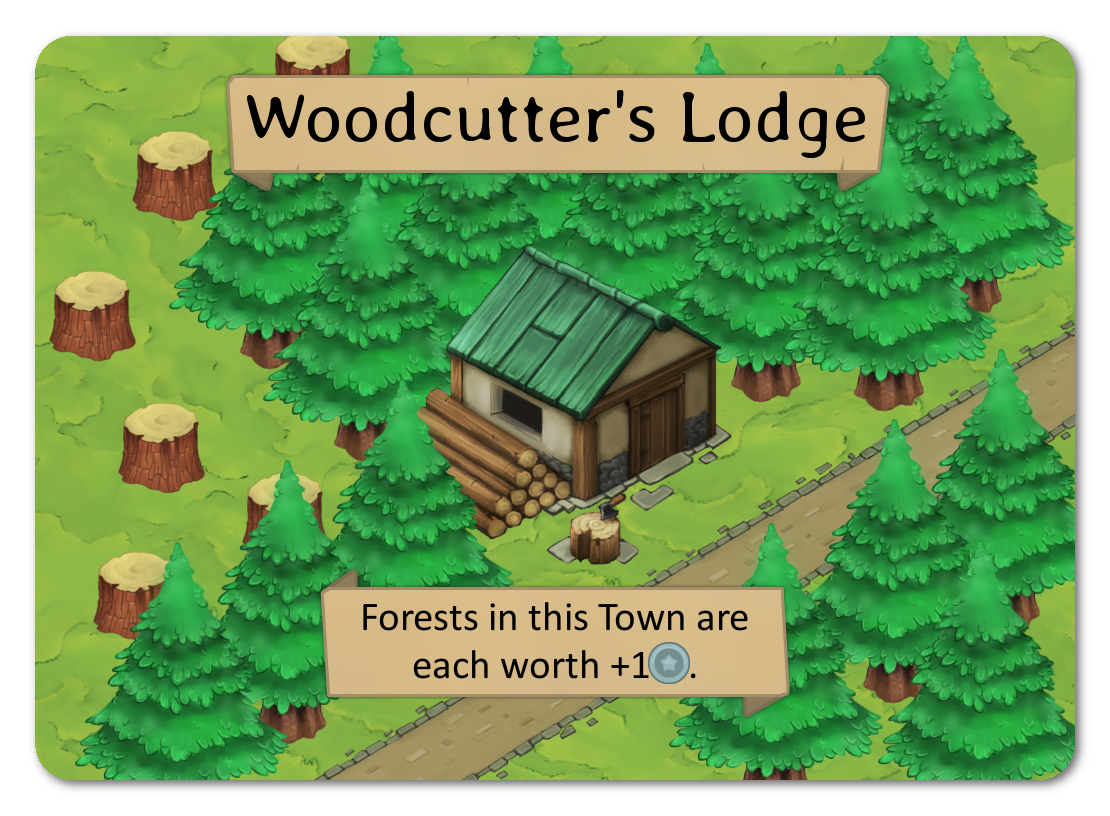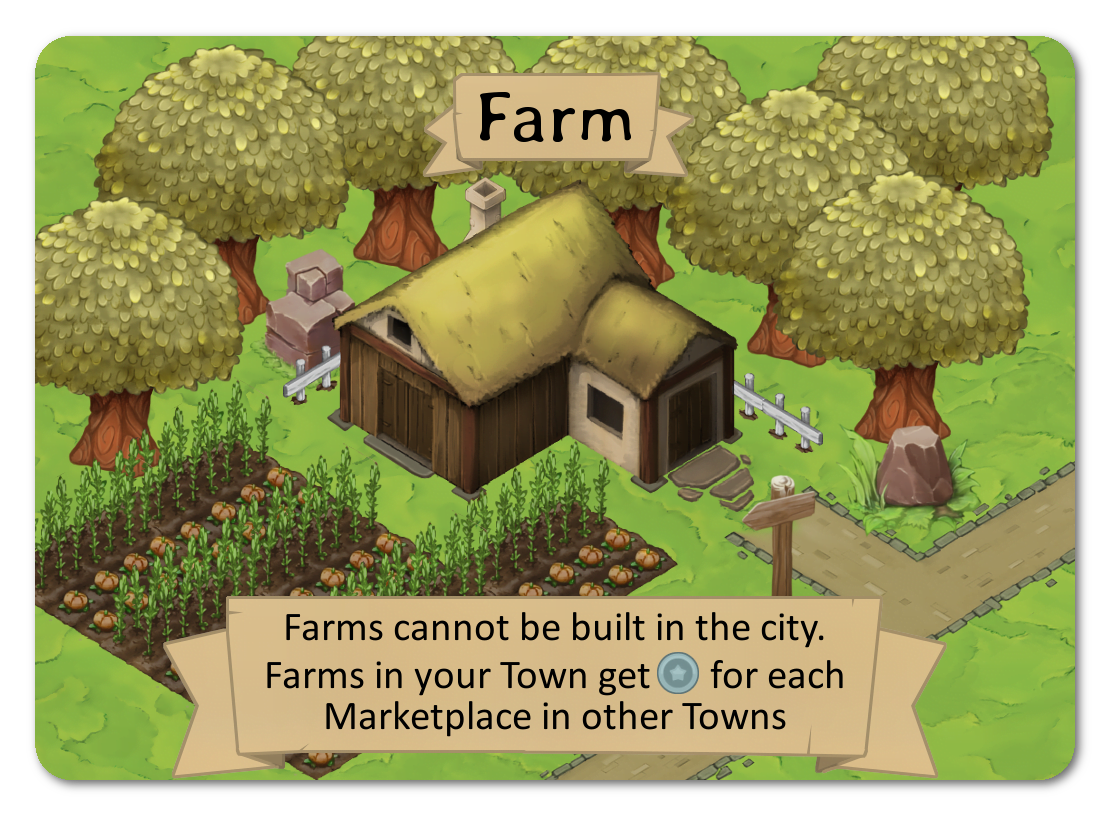Cities & Towns Revision!
In May, I launched the game The Road to Springdell, which was known in development for a while as Cities And Towns. C&T was one of the slowest projects I worked on considering how quickly I iterated the mechanics. The type of art it needed wasn’t something I could do, nor anyone I knew – and the free art in the vein wasn’t quite right either.
I’ll probably return to the central mechanic of The Road to Springdell, by the way – it’s a robust little game engine and it can be used for more complicated games with more cards and more variance.
The main thing I want to talk about here is the biggest change in the cards – the way I shifted the mechanics wholesale.
In the final printing of The Road to Springdell, each type of building you can build in your town makes each other kind of building in your town better, a bit. Farms make mills more valuable, mills make wells more valuable, wells make farms more valuable – but you’re also balancing the value of each town component against the buildings in the city of Springdell.
Originally, only four buildings had rules on them, and the other four didn’t. Here they are: 



The Woodcutter’s Lodge remained as is – but the other cards went through some big changes.
The Tower was just bad – I thought that mechanic might make towers more ‘disposable’ so you’d be more likely to turn them into forests, while also making towers likely to show up in the city. The farm created awkward play moments where players would wind up getting a forest into Springdell, which isn’t supposed to happen. And the Market wound up being super way too good.
The new design is smoother, and less complex to play, but it makes the play more complicated. Every card that’s played is of a different value to you and each other player, even though it has some value. A card may be worth three points in your town, but five points in someone else’s. You have to decide if you’re going to offer that up or try and block it.
These are dials you can choose to turn. Sometimes, giving players more difficult choices yields better gameplay than giving them faster choices. Players spend the most time thinking over the trick portion of the game as it is – might as well make the time spent thinking more interesting!